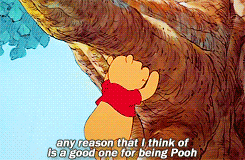Nationality for the Dead
By
Azerbaijan! Azerbaijan!
Cherished land of valiant sons,
We are ready to give our heart and life for you.
All of us can give our blood for you.
Live happily with your three-colored banner.
Live happily with your three-colored banner.
Thousands of souls were sacrificed for you.
Your chest became a battlefield.
Soldiers who deprived themselves of their lives,
Each of them became a hero.
May you become a flourishing garden.
We are ready to give our heart and soul for you.
Reading these lyrics, Western audiences might feel an uneasiness about the militarism and nationalism expressed, but this is perhaps best attributed to the long-lasting peace that has panned out for the Western world. It was not too long ago, still within my own lifetime that I recall instances in Australia, where people proclaimed the line, “this isn’t what the Diggers fought for” (the soldiers digging trenches in WWI).
The line was always debatable, since you can’t really ask these soldiers if they would turn in their graves at the thought of gay marriage or tax breaks for investment properties. Its decline though seems less to do with people having better logical reasoning skills; and more to do with a disdain for the past. The wishes of the diggers will no longer be mentioned, because we just don’t care what they think anymore.
In the fallout of the Black Lives Matter protests, there were people in Australia vandalising statues of Captain James Cook, drawing a connection between the plight of the 40,000-year inhabitants of Australia (who were “discovered” by Captain Cook); and the treatment of African descendants by American police. Whether or not we agree that such a connection is tenable or relevant, the fact is that Cook’s motivations were being judged under a new set of criteria; criteria where he was now undeserving of a statue.
In the disdain of the past, the logical conclusion is that the old Australia is not the same nation as the new Australia. What “they” did isn’t like what “we” do. In terms of international governance, there are some major concerns with this line of thinking, as we can’t have countries going through a rebranding excercise and dismissing all their debt obligations, like what China does when it refuses to acknowledge the $6 trillion worth of bonds issued by the Republic of China. Mao Zedong’s new government in 1949 inherited all the assets of the “old” government and all the infrastructure funded by the bonds, but these bonds were apparently a thing of the past that no longer mattered. A good-enough reason.

Disney, the owner of Winnie the Pooh, carried out a similar tactic when it purchased Lucasfilm, accepting all the money from ticket sales, but ceasing royalty payments to Alan Dean Foster and all the other authors of the Star Wars books.
We only bought the assets, not the debts
Dual Allegiances
Amongst the questioning of national values, it’s no surprise that there are defectors willing to tear it down. Edward Snowden for instance was granted access to American secrets and has expressed American values such as free speech, yet has also criticised the construction of a panopticon; and “turnkey tyranny” as he describes it. His moral cause ultimately proved to be more important to him than the appeal of McDonald’s and fake tits.

“My life has always been mediated by a screen. What difference does it make whether I’m looking at a screen in New York or Berlin or Moscow?” Snowden says. “It’s all the same internet.”
In this quote, we see Snowden echo the crux of Nationality as a Service − that our online life is more significant than our geographical existence; and that this is where hearts and minds are won. In leaking secrets to journalists, Snowden’s actions also support the argument that the incumbent geographical powers, reliant on militaries and coercion over their citizens, are increasingly vulnerable to being stripped of their power by defectors.
Permanent Record, a story of Edward Snowden’s life, including how he helped to build a system that he ultimately tore down.
Modern humans love the Internet; and there is widespread (though not total) support for the likes of Edward Snowden and Julian Assange. Is it possible that dead citizens such as the diggers also held such competing loyalties; and just never had the same chances afforded to Edward Snowden? Perhaps Captain Cook would’ve wanted to defect from Britain, but a difference with modern times is that more of our life is outside the control of geographical powers insisting on loyalty.
In thinking about the nationality of the dead, maybe they would have become citizens of Nationality as a Service, if only the Non-Human Party had come into existence soon enough.
Ada Lovelace, the first programmer for a general-purpose computer
Soft and Hard Forks
As society becomes more digital and adaptable, it further empowers individuals to create their own societies. Rather than constantly jumping ship though, citizens might be motivated to change the course of their existing nations. “If only Australia would keep being Australia, but with cloud seeding to discourage rain on weekends”. Such a gradual change is comparable to what’s known in the software industry as a “soft fork”. The world changes, but you can carry on as normal, unaware that the world doesn’t quite work the way you think it does.

With hard forks, users do need to be aware of what’s going on, otherwise they can’t exist in the forked system. Maybe there’s a new formula for tax; or their children are taken away from them. You can’t just pretend that it’s not happening.
Hard forks are more likely to cause secession, since users have this awareness that this is definitely different. Such secession has been rare with geographical governments though − as all the forks arise, and the old Australia transitions to the new Australia, the land being controlled remains much the same; and look around, nobody has split off to maintain the rules of the old Australia.
A notable fork happened in Ethereum when funds were “stolen” from the DAO. A “bug” in the code allowed someone to withdraw funds from a shared investment pool. Fans on one side believed that code is the source of truth; and that whether you regard the code to be buggy or not is irrelevant. These were the rules set out; and you can’t just change them when they don’t work out as favourably for you as you’d hoped. Fans of the other side felt that their sympathy for the victims contributing to the DAO was more important than following the agreed-upon rules of the whole currency.
As a result, Ethereum split into two:
- “Ethereum”, for sympathisers of the victims
- “Ethereum Classic”, for sympathisers of the thieves
It should be noted that with the immense growth in Ethereum since this event, it’s now considered unfeasible that any pot of funds could be sufficiently important, that the community would consider repeating this interference in the chain, pretending that valid transactions didn’t happen.
In our consideration of nationalism and online identities, this fork of Ethereum serves as a useful example of how online societies might evolve: when the chain split in two, users still had funds in each chain. It was totally possible for them to stay active in both chains afterwards, then delay their choice of which chain they’d proclaim to be the best.
Imagine government policy running simultaneously in two parallel universes − what would happen for instance if we stopped giving tax breaks for investments in extra digital real estate? People might play along with both alternatives for a few months, then proclaim the new Australia to be the one that worked out better by their personal metrics.
Of course, the ability to run this experiment of simultaneous possibilities (an “A/B test”, in the software industry) is not possible if your society is dependent on physical processes and physical objects that cannot exist in parallel universes. Nations that make a faster transition to digital-first nationality will have an increased ability to experiment, which is only going to advance them faster and faster.
So what have we uncovered in these ideas?
- Dead citizens no longer belong to the same nations as the living
- You don’t belong to the same nation as when you were born
- With militaries becoming less relevant and less capable of achieving their aims, nationalism will decrease at a time when it’s easier than ever to defect.
- Digital-first nations will have an increased ability to experiment and improve
As soon as Nationality-as-a-Service nations start to emerge and start to become a feasible way of life, we will see an exodus away from militarily backed, geographical governments. They will be vulnerable to having their assets plundered and their debts dismissed by the new, fragmented owners. As bonds from one country go unpaid, it’ll inevitably lead to a crisis of confidence in the bonds of all geographical governments, further accelerating defection to Nationality-as-a-Service nations, with opt-in, transparent systems for creating harmony amongst intelligent agents.
If you’d like to avoid having your assets stolen; and you’d like to be part of a society that can improve at an exponentially faster pace, then please spread the word about the implications and possibilities of Nationality as a Service ✨🔮
